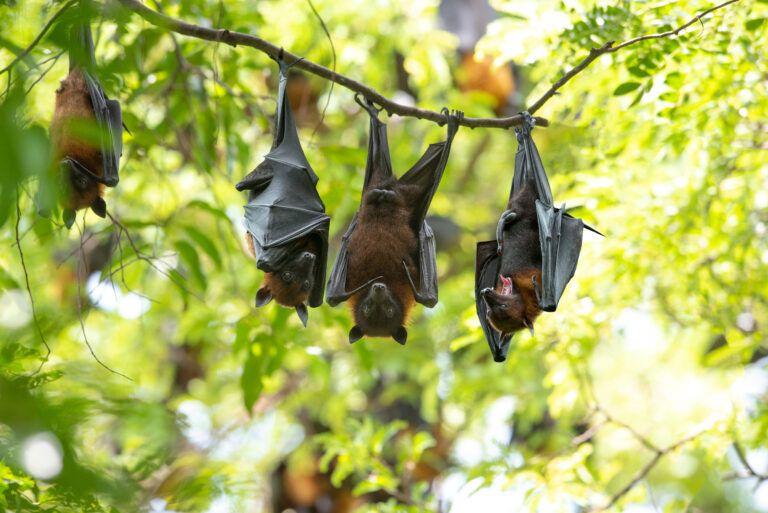These viruses belong to Henipavirus genus, within the Paramyxovirus family, and have the ability to infect humans. Among the six recognized species within this genus, Hendra virus and Nipah virus stand out as particularly potent emerging pathogens, capable of triggering outbreaks in human populations and linked to elevated case-fatality ratios. Henipaviruses find their reservoirs in small mammals, notably fruit bats.
The consequential risk of Hendra virus spillover to humans is exacerbated by habitat loss among bats, driven by environmental changes attributed to climate change. This evolving dynamic has recently manifested in a concerning outbreak of Nipah virus also, in Bangladesh, where eight individuals got infected after consuming raw date palm sap. However, in our globalised world this virus can readily spread to other continents (e.g. Europe, Americas).
Nipah virus , primarily hosted by fruit bats, can be transmitted to humans through direct contact with infected animals or via the consumption of food products contaminated with the bodily fluids of these carriers. Additionally, the virus has demonstrated human-to-human transmission through close interpersonal contact. Notably, no specific antiviral drugs or vaccines are currently available to combat Nipah virus infections.
Recent epidemiological data indicates a fluctuating incidence of Nipah virus infections, ranging from zero cases in 2016 to eight cases in 2019. Despite a comprehensive public health campaign in 2016, which advised against the consumption of raw date palm sap, the overall level of awareness among the population remains insufficient. This deficiency persists despite ongoing efforts in risk communication and community engagement, underscoring the critical need for heightened vigilance and awareness to mitigate the growing threat of Henipavirus transmission.
It is of great importance that individuals traveling to regions or countries with a high prevalence should exercise heightened caution and refrain from consuming foods that pose potential health risks!
For further information please visit these websites:
- CDC Yellow Book 2024: Henipavirus Infections
- Li H, Kim J-YV and Pickering BS (2023): Henipavirus zoonosis: outbreaks, animal hosts and potential new emergence
- Science Direct: Henipavirus

